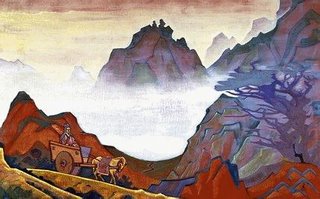Confucius on China's Ancient Anthology of Poetry

The below excerpts are Confucius's references to the Shih Ching anthology, or the ancient Book of Poetry, in his Analects (here translated by James Legge).
Confucius, or K'ung Fu-Tzu lived around the year 500 BC in China. The Shih Ching--like the I Ching or Book of Changes, Shu Ching or Book of History, and Li Chi or Book of Rites--predates him.

Book I: Hsio R
Chapter XV
Tsze-kung said, 'What do you pronounce concerning the poor man who yet does not flatter, and the rich man who is not proud?' The Master replied, 'They will do; but they are not equal to him, who, though poor, is yet cheerful, and to him, who, though rich, loves the rules of propriety.'
Tsze-kung replied, 'It is said in the Book of Poetry, "As you cut and then file, as you carve and then polish."--The meaning is the same, I apprehend, as that which you have just expressed.'
The Master said, 'With one like Ts'ze, I can begin to talk about the odes. I told him one point, and he knew its proper sequence.'
Book II: Wei Chang
Chapter II
The Master said, 'In the Book of Poetry are three hundred pieces, but the design of them all may be embraced in one sentence-- "Having no depraved thoughts."'
Book XVII: Yang Ho
Chapter IX
The Master said, 'My children, why do you not study the Book of Poetry?
'The Odes serve to stimulate the mind.
'They may be used for purposes of self-contemplation.
'They teach the art of sociability.
'They show how to regulate feelings of resentment.
'From them you learn the more immediate duty of serving one's father, and the remoter one of serving one's prince.
'From them we become largely acquainted with the names of birds, beasts, and plants.'

2 Comments:
Where do you find this stuff? I think you must spend all your spare time reading, but I, for one, am grateful for the tidbits of literary thought you post.
This particular post is interesting because it shows that poetry was thought of as more than a simple pleasure. Instead, it is as if the poems in "The Book of Poetry" serve as a sort of moral compass. I don't think of poetry today in that fashion, so this startled me. How many other cultures regard poetry this way?
Hi Christine,
I had wanted to return to the turn of the 20th century, and you have pinpointed one reason why. When I bumped into Project Gutenberg a couple times a few months ago, I decided to make my way through the alphabet, and check for what's added there each day.
Even with an eye toward its simple pleasures, reading through an anthology of great poetry can have the effects that Confucius notes in Book XVII. That "moral compass" part that you note, comes from selection for the anthology, which would have effect on practice--as opposed to our selection in recent days when there is a movement toward accessibility, sound, and language artistry or music.
You have me thinking about that Confucius comment out of Book I, "I told him one point, and he knew its proper sequence." This casts poems in the light of having a right interpretation, which is how poems were looked at for the sake of teaching not too long ago--the current movement being that whatever impression the poem makes on the individual, is the art of the poem at work. Press a simple button, receive a simple pleasure.
I got to poetry through studying philosophy and mysticism in (esp.) my 20s--so I posted this up without even thinking there would be such a comment as yours. My whole view of poetry is that it is mainly and most importantly shamanistic, the shaman-poet forever re-informing the culture, the positive change aspect, why it is so so so important.
Thanks very much. It's good to have you back around after your vacation.
Bud
Post a Comment
<< Home